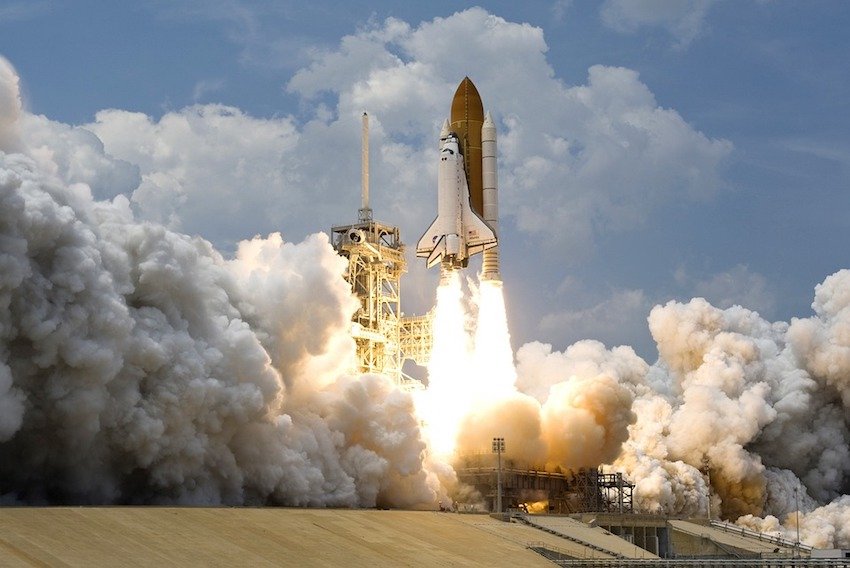A newly-designed Chinese rocket slated to carry the country’s heaviest ever satellite failed Sunday, Chinese news outlet Xinhua reports.
The Chinese plan to conduct “further investigation” into “an anomaly [that] occurred during the flight of the rocket” and allegedly caused its failure. No information has been provided regarding the nature of either the “anomaly,” or the “investigation” China will perform.
A rocket of the same design was expected to deliver a lunar probe to the moon on behalf of the Chinese later this year, as China continues preparation to become the third country, after the United States and the Soviet Union, to land a man on the moon. It is unknown how Sunday’s hitch will affect the timetable of the probe delivery mission.
Chinese president Xi Jinping has fast-tracked development of the country’s space program in an effort to bolster national security and defense, Reuters reports. He is adamant that China’s ambitions in space are strictly peaceful. The US Department of Defense, however, worries China is developing strategies which would prevent other countries from employing space-based assets in a time of crisis.
China has already made a number of significant accomplishments in space. In 2003, China became the third country (US and Soviet Union/Russia) to send an astronaut into space on a nationally built rocket.
In 2013, China’s Yutu rover touched down on the moon’s surface, sparking fanfare throughout the nation. The rover’s exploration was marred by technical difficulties, but the craft did gather evidence of a new variety of moon rock younger than any rock documented during the United States’ Apollo missions. Some rocks photographed during the Chinese mission were estimated to be 2.96 billion years old. The Apollo mission found no rock younger than 3.4 billion years.
Still, China’s space program has historically lagged well behind those of the United States and Russia/Soviet Union. Xi’s new initiative, though, may rapidly alter the dynamic of space-based competition.
In 2016, China sent more rockets into space than Russia did, and completed development of the world’s largest radio telescope, a 1650-foot-wide dish which will gather new data pertaining to ancient cosmic history, detect low-frequency gravitational waves, and search for signals transmitted by extraterrestrial life forms, space.com reports.
“As the world’s largest single-aperture telescope located at an extremely radio-quiet site, its scientific impact on astronomy will be extraordinary, and it will certainly revolutionize other areas of the natural sciences,” said Nan Rendong, the project’s chief scientist.
By the end of 2018, China plans to become the first country to land a rover on the far side of the moon. The Chinese aim to put a probe on Mars by 2020.
Like many scientific endeavors, the exploration of space requires world powers to strike a balance between cooperation in the name of science and competition in the name of self-preservation and defense.
The data gathered by the Chinese Yutu mission was made available to the world’s scientific community, as was that collected during the American Apollo missions. The Chinese intend to make the aforementioned radio telescope available to researchers everywhere after a team of Chinese scientists conduct “early stage research” for a few years.
Nonetheless, the powers that be in China as well as in the United States are well aware of the military value of certain space technology. As mentioned earlier, Xi believes his space program can contribute to military efforts. Meanwhile, the US Department of Defense wonders whether China’s advancement in space threatens the US’s and other countries’ own space-based military technology.
World War III will probably not be the stuff of a George Lucas film, but it appears space is playing an increasing role in modern warfare. At the same time, scientific advancement will progress much faster if scientists around the world are allowed to cooperate. This tension between science and competition is not unprecedented: weaponry is always developed in a spirit of secrecy and competition.
So, the space-race may be part relay, part individual. Whatever the case, despite the failure of the rocket Sunday, President Xi’s recent emphasis on his country’s space program may give China the fuel it needs to join the USA and Russia at the front of the pack.




























Comment Template